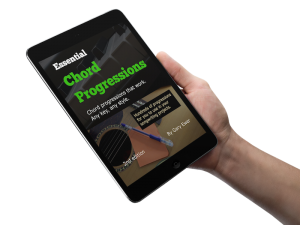After all these years, love songs still work. You’d think songwriters would have run out of original things to say about the topic. If you expand the category a little more and consider the songs that are more generally about relationships, the majority of the songs on the Billboard Hot 100 at any given time have to do with the relationship the singer is having with some other person.
So it’s obviously something that people want to hear about. No producer would encourage a singer or band to sing about something that’s just going to make their fans groan.
Where you might hear some complaints is if the song is simply a “I love him/her so much” kind of love song.
 There’s more to a song hook than meets the ear… a lot more. “Hooks and Riffs: How They Grab Attention, Make Songs Memorable, and Build Your Fan Base” is a vital manual for any serious songwriter.
There’s more to a song hook than meets the ear… a lot more. “Hooks and Riffs: How They Grab Attention, Make Songs Memorable, and Build Your Fan Base” is a vital manual for any serious songwriter.
Love with no compelling backstory is going to be difficult to sell to a target audience. That’s because the best songs create emotions — they don’t describe them, as such. So if your song boils down to “I’m so in love”, with nothing much else, you’ve given your listeners nothing with which they can create their own set of emotions.
Your best bet when it comes to love songs is to finesse the topic. In other words, don’t just sing about how you’re feeling; sing about the situation or circumstance that leads to how you’re feeling.
In fact, part of the finessing might be to start with determining not to write a standard love song, but instead to write about the complexities of relationships. When you write about relationships, you have a much deeper well from which to pull ideas, and further finesse the idea of what a love song can be.
Adele’s song “Hello” (Adele Adkins, Greg Kurstin) is a good example of what I’m trying to describe here. It could have simply been a “I really miss you/ My life feels like a mess” kind of song, but the lyrics have been finessed to create more opportunities for the listener to create their own set of emotions, maybe even drawing on their own life experiences.
There are some lines that stand out:
- “There’s such a difference between us, and a million miles” – A creative way of saying “I really don’t expect much here.”
- “Hello, can you hear me?” — sounds so perfectly full of despair.
- “Hello from the outside” — a great way to say “I miss you.”
- “It’s so typical of me to talk about myself, I’m sorry” — A bit self-deprecating, and helps soften the harsh edge of hurting songs.
As a songwriter, all it really takes is to take your song, line by line, and think about ways that you’ve made the topic of love even just a little more interesting. “Hello” isn’t just about “I love you.” It’s about “I miss you”, and when you read through the full lyric, you find that there are deeper things going on — that the singer is willing to take some blame, that there’s a history there, and that the singer needed to move on while the object of her love stayed in “the town where nothing ever happened.”
It really doesn’t take much. But if your love songs are all just “I love him/her so much” kinds of songs, and you haven’t finessed the topic any more than that, you likely haven’t given your fan base anything to build their own set of emotions with.
 Written by Gary Ewer. Follow Gary on Twitter.
Written by Gary Ewer. Follow Gary on Twitter.
 The right chord progression can help establish the right mood. “The Essential Secrets of Songwriting” eBook Bundle has 2 main collections of progressions, plus eBooks on how to harmonize your own melodies, and more.
The right chord progression can help establish the right mood. “The Essential Secrets of Songwriting” eBook Bundle has 2 main collections of progressions, plus eBooks on how to harmonize your own melodies, and more.










